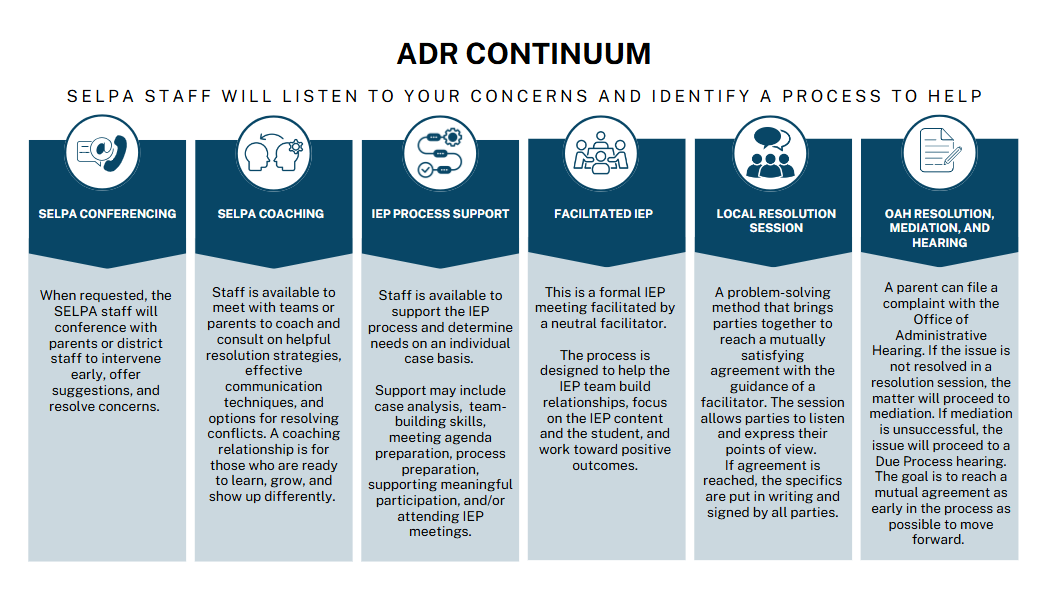Alternative Dispute Resolution
ADR is an informal method of settling disagreements that may arise during the IEP process. ADR uses specific options in this process to open communication, promote understanding, and reach agreements that support and strengthen relationships. ADR is designed to meet the interests of the parties involved to result in a mutually agreeable outcome, rather than a decision solely made by a third party, hearing officer, or judge.
SELPA’s Role In Disputes
The San Luis Obispo County SELPA provides Alternative Dispute Resolution activities for parents and schools within the county. The SELPA staff offer conflict resolution related to procedural and substantive special education compliance issues for LEAs and other agencies. Student specific disputes between parents and districts can often be resolved by providing suggestions and options to avoid state mediations, due process hearings, and/or compliance complaints. The SELPA staff, upon request, work with parents and school districts to explore issues and find solutions through the structured processes of Intake, Conferencing, Facilitated IEPs, and Resolution sessions.
The Difference: Local ADR and a State Due Process Hearing
A local Problem Solving/ Dispute Resolution session is a voluntary, confidential, informal meeting at which the parties agree to communicate and cooperate in a non-adversarial atmosphere with an experienced facilitator who will guide them through a process to seek consensus and a local, legally binding agreement. Due Process refers to the legal procedures that can be raised when there is a concern that certain principles or practices have not been followed for children with special education services. A parent can request state mediation with an Administrative Law Judge, provided by the Office of Administrative Hearing with the goal of reaching a mutually agreeable settlement.
Local ADR Continuum
Alternative Dispute Resolution (ADR) involves providing alternative means of solving problems that arise between families and schools. The ADR program involves a range of tools like training parents and educators in effective communication and negotiation skills or conducting local informal resolution. The intent of this program is to maintain positive relationships between the student’s family and the school. Alternative Dispute Resolution (ADR) allows the parties in conflict to control and shape their own agreement. Collaborative working relationships between parents and district personnel is not only maintained, but often improved.

ADR Resources
Explore our alternative dispute resolution resources to discover effective strategies for resolving conflicts outside of traditional legal proceedings, promoting efficient and amicable solutions tailored to your needs.
CADRE Works
Discover valuable resources and expert guidance on special education dispute resolution through CADRE (Center for Appropriate Dispute Resolution in Special Education).

